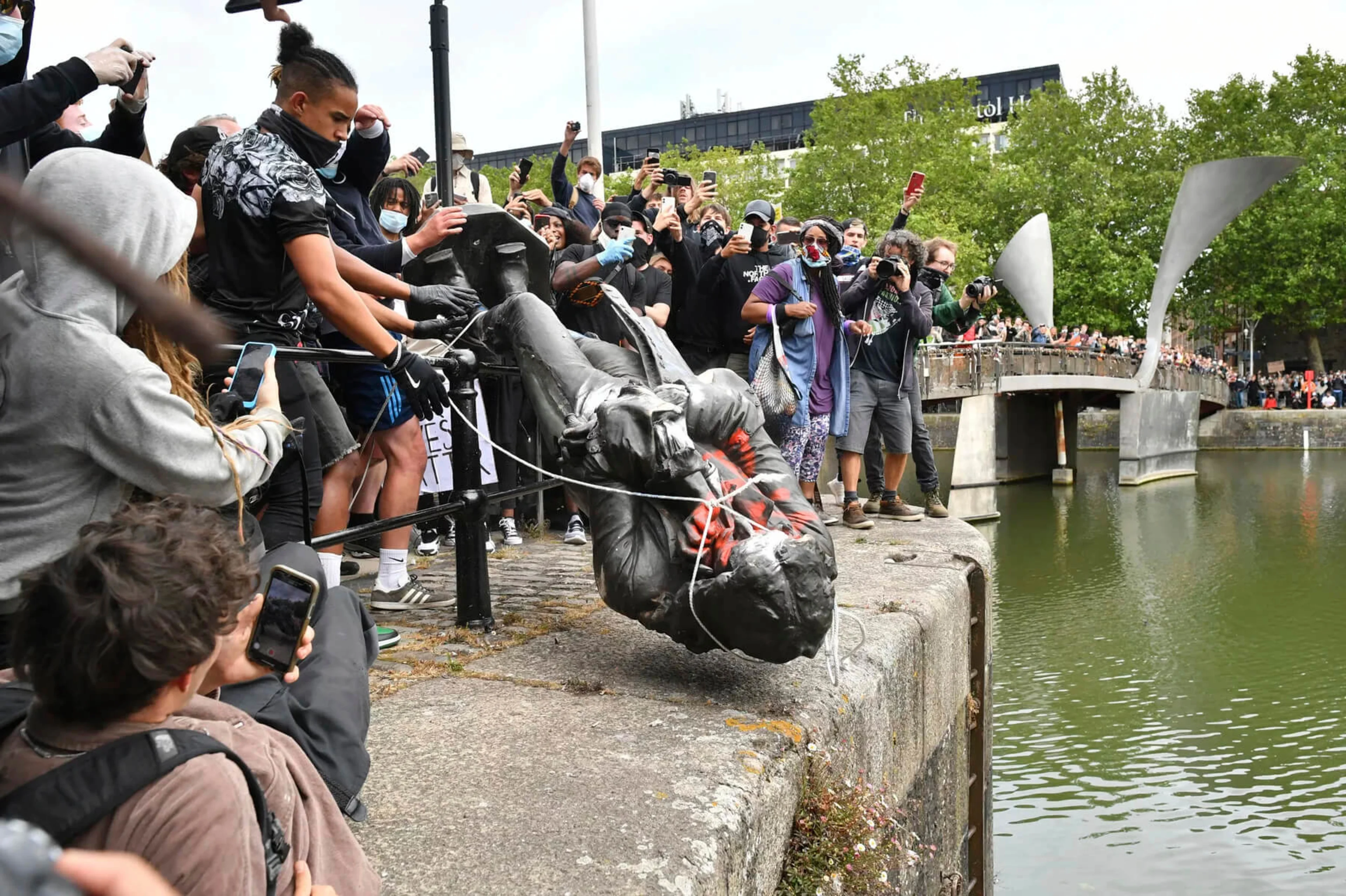We live in an age of transformational change. AI is expanding the definition of human wisdom and re-writing 'possibility'. Such things as productivity apps and self-improvement journals are in the digital shopping carts of millennials and Gen Z-ers as young people look for enlightenment in the way they live. And those same people are driving the efforts to write some of our history's wrongs and actually chart a path toward a more progressive future. This is why I have confidence in the future.
Yet, our politics is doomed. You know that. But it is not doomed to fail, oh no. Politics is doomed by the fact that young people are not a huge source of political capital - you can't win an election by catering for young people. That's why the focus is always on the older generations' priorities, you know, pensions, social care etc. Young people are just expected to fend for themselves, they are simply not there politically. We saw this during the pandemic, when the detrimental effect of school closures was masked by the extensive media coverage of the effect the coronavirus had in care homes. When schools reopened again, it was just expected that things would return to normal, but now school absences are at record highs. Young people are rarely, if ever, a political focus.
Part of the justification, if you will, for ignoring the needs of young people is that, in terms of turnout at elections, they are rarely present. In the 2019 General Election, just 47% of voters aged 18-24 turned out to vote, a significantly low figure compared to our broader UK average of 65% turnout, and our European neighbours. Academics and political scientists like to offer up some of their complex answers. Their go-tos are often young people's lack of knowledge about politics, or that they lack a real stake in society - based on the fact that many of these people don't have children or own a home, which I still don't think are good metrics for adulthood or citizenship, but, we move on. These complex answers, however, are not at all correct. In 2022, record numbers of students enrolled in A-Level Politics courses, and, in my opinion, young people have the greatest societal stake of all. What is that you ask? Being the future.
A potential reason for increased uptake in political education at a higher level may be that we are finally seeing a representative change. The 2019 election saw many freshman MPs face complaints that they were 'too young and inexperienced', and, globally, the proportion of MPs aged under 30 has increased to 2.6%. Perhaps young people now feel that their voice is heard?
Yet, we still make up 50% of the world's population, which is a huge deficit in terms of representation for young people under 30. This needs to change. The young people of any given time in history have always been the future, and that doesn't change, regardless of where our political focus is. And besides, ought our nation's legislators be those who are concerned for the future of those that they govern?
Well, if they aren't, then we certainly are. Young people have shown that their absence from polling stations is not political apathy or evidence of an uninformed generation. In 2020, in the United States, the streets were filled with young activists following the death of George Floyd, and made up a large proportion of the protests against the overturning of Roe v Wade in 2022. These were not simply Yankee phenomena, however, as the movement subsequently known as Black Lives Matter saw equal sympathy amongst young people in the UK. We just prefer a more active politics.

Why? Dissatisfaction. Pessimism in the UK has reached astronomical levels. Cost-of-living crisis, bleak prospects from all career paths from civil servants to junior doctors, sleaze and scandal in Westminster. That very much describes the dismal climate in Britain - soon to become literally so as we fail to take real action on the environmental catastrophe that awaits us. Politically, Britons are so fed up that over 61% of us want an entirely new political party.
I agree with the majority. We need change, we deserve change. For too long has British politics been plagued by corruption, scandal, inactivity and, my pet peeve, conservatism. Not Conservatism the political ideology - although that too is a plague - but a certain reluctance to embrace change. It seems, in the UK, that we just don't do anything.
But, I digress.
The ranks of protesters fill me with great confidence and excitement. Finally, we have a diverse group of young people ready to bring us closer to the future. Finally, we have a citizenry ready to embrace, and, crucially, prepared to create that change. So far, it seems to be only young people that are shouting the loudest about real issues: climate change, government accountability and a bleak economic future. Yet, their voices are drowned out by marginalisation in politics.
This status quo will not last long, however. Not while young people continue to be the most active demographic in politics, harnessing the ability of technology to transform activism. That same technology is allowing young people to consume political information and news at a far greater intensity than the encyclopaedia of activists before them. Uninformed? I don't think so.
What I think is that we are on the edge of a revolution. Not a violent one with lots of blood and infighting. But a beautiful shift in power from the government to the governed, and a shift in focus from the now and the old to the young and the future, on a harmonious level. A new Glorious Revolution. For this reason, I have confidence.
I also have confidence because the far greater part of young people are liberal. British Liberalism needs a revival. What do I mean by Liberalism? Political, legal and fundamental equality, consent of the governed, the rights of individuals to fully chart their own path through life, and the rights of those individuals to be protected by law and equality before that law. Young Britons are overwhelmingly more liberal than previous generations, and the best part about this is that they are staying liberal. There has been a tendency for people to gradually get more conservative as they get older, but millennials and Gen Z are defying that rule, and are maintaining their liberal inclinations with age.
This means that the Conservative Party, and their agenda - or lack thereof - of inactivity, will not survive, leaving a gap in the market for a new breed of party that we so crave. We are currently on the edge of a peaceful but noisy revolution in which young people take charge of ushering true liberalism back into politics, and begin the age of active politics.
This is why I have confidence.
Written by
Archie RankinA young, pen-wielding Liberal with intellectual curiosities in all things politics, with huge appetites for history, philosophy and economics. Committed to making a positive difference for young people in my role as Associate Editor & Innovation Lead, constantly seeking out new ideas and approaches to drive innovation and progress.
Read next
Protests happen at Unis everywhere. It took bailiffs in Manchester for people to notice.

Jess Boot-Cowie
Why don't we vote? Let's address the elephant in the room

Sean Ryan
Ignorance is not bliss. Take back your political ownership

Archie Rankin
Weekly emails
Get more from Archie
The Fledger was born out of a deep-seated belief in the power of young voices. Get relevant views on topics you care about direct to your inbox each week.
Write at The Fledger
Disagree with Archie?
Have an article in mind? The Fledger is open to voices from all backgrounds. Get in touch and give your words flight.
Write the Contrast

